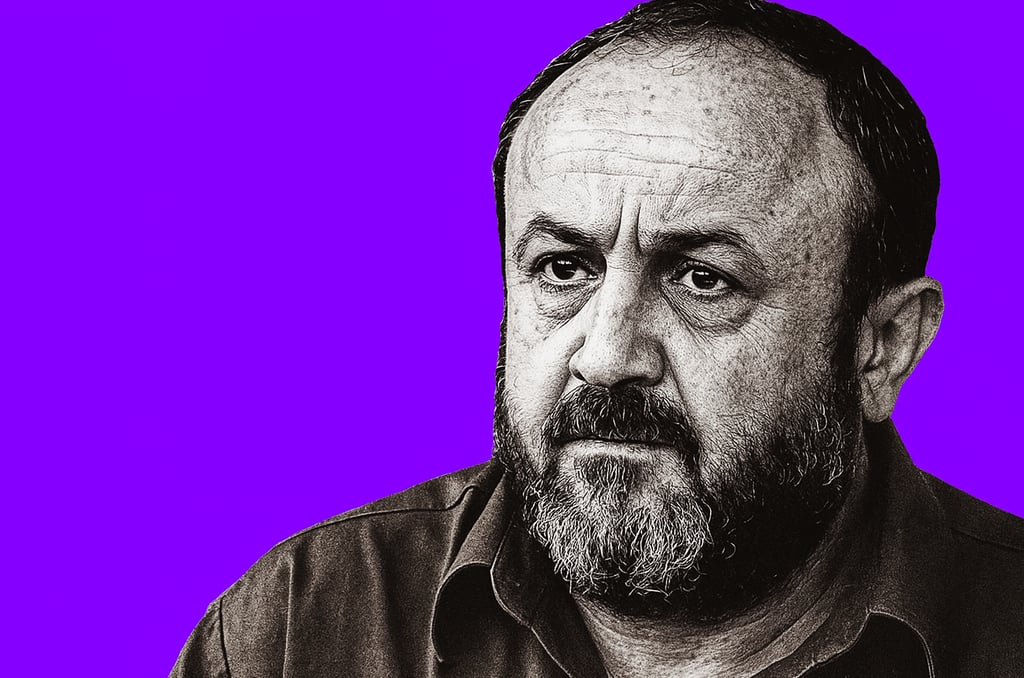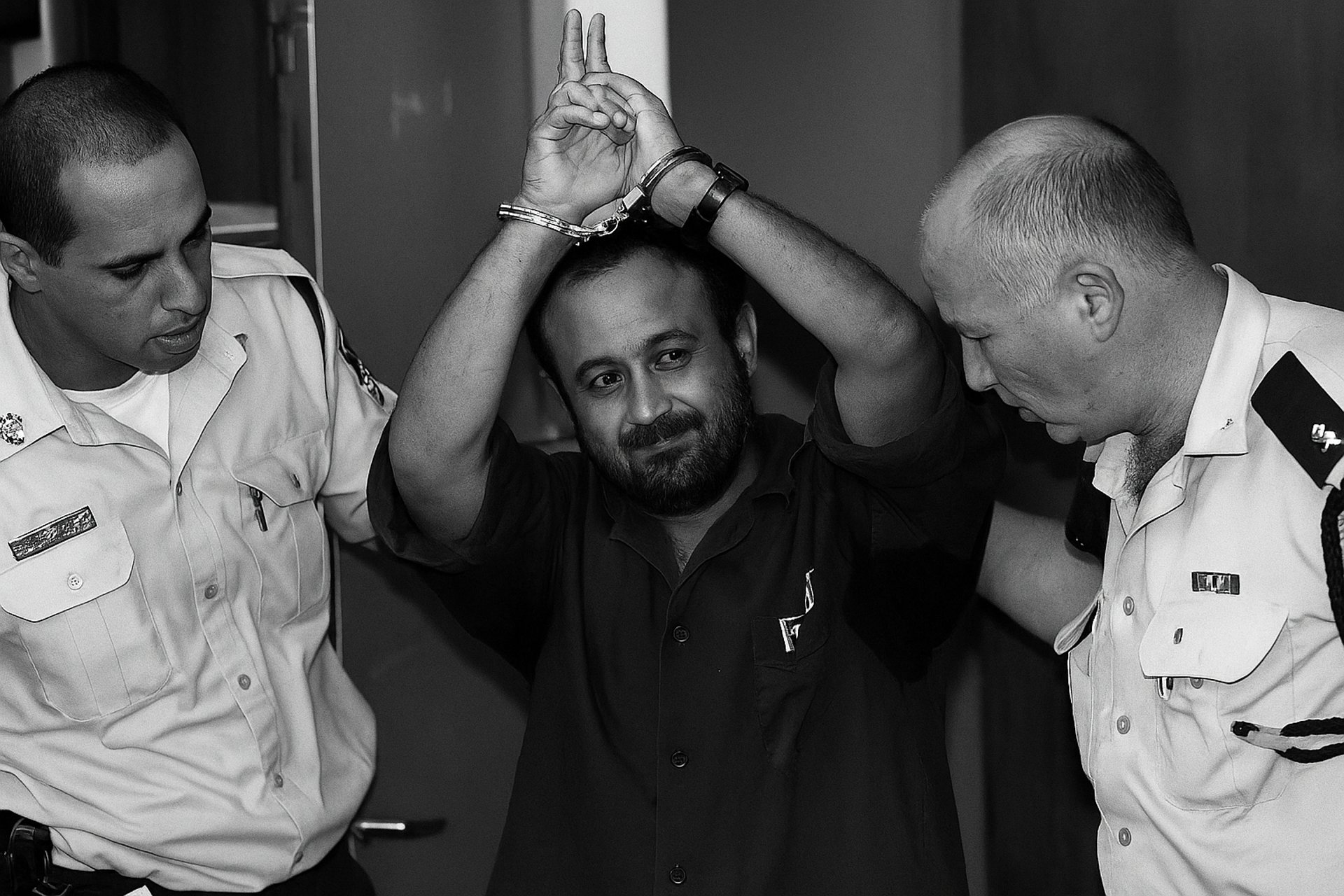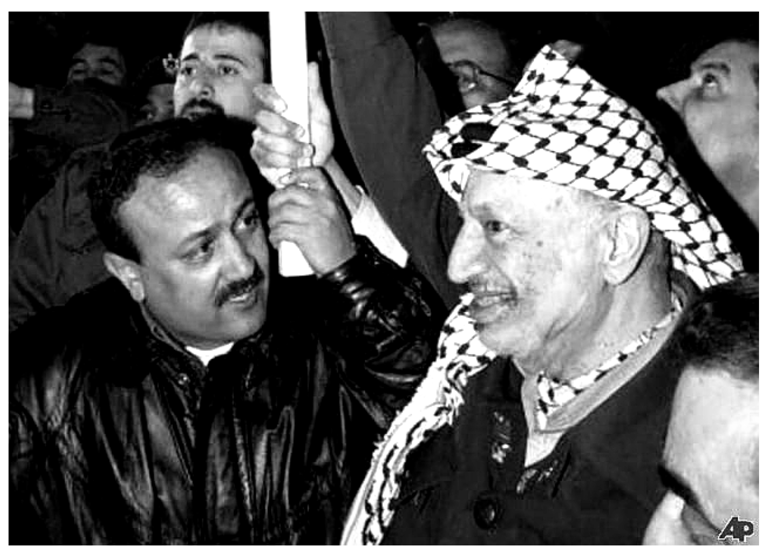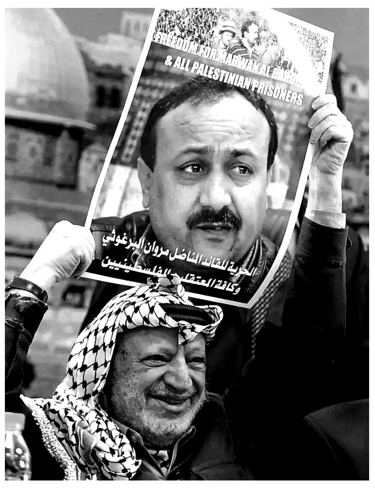Marwan Baghouti
Portrait of the Palestinian Mandela
8/7/20253 min read


Youth and Political Engagement
Marwan Hasib Ibrahim Barghouti was born on June 6, 1959, in Kobar, a village near Ramallah in the West Bank. Coming from a family deeply committed to the Palestinian cause, he grew up in a context marked by Israeli occupation. Early on, he became politically active, joining Bir Zeit University, a major center of Palestinian student activism, where he earned a degree in political science and economics.
Political Rise within Fatah
Barghouti officially joined Fatah in 1974 at the age of 15 while still in high school in Ramallah. In 1983, he was arrested by Israel for his political activities and sentenced to several years in prison. After his release in 1984, he resumed his studies at Bir Zeit. In 1987, at the start of the First Intifada, he was arrested again and then expelled in 1988 to Jordan, where he remained until 1994, living between Amman and Tunis, the headquarters of the Palestine Liberation Organization (PLO) led by Yasser Arafat. His exile ended following the Oslo Accords in 1993. Although not an official negotiator, he publicly supported the agreement within Fatah. He returned to the West Bank in April 1994 with Arafat and other PLO officials to establish the Palestinian Authority. In 1996, he was elected to the Palestinian Legislative Council representing Ramallah. During the Second Intifada (2000–2005), Barghouti became both a political leader and an active supporter of the Al-Aqsa Martyrs' Brigades, Fatah's armed wing, which claimed responsibility for many attacks against Israeli targets. This dual role increased his popularity among Palestinians but also made him a target for Israel, which considers him a terrorist.







Arrest and Controversial Trial
During the Second Intifada, Barghouti was considered an influential leader of the uprising. On April 15, 2002, he was arrested during an Israeli military operation in Ramallah. Tried in a highly controversial trial marked by allegations of serious procedural flaws, he was sentenced to five life terms in prison despite the absence of conclusive evidence and several exculpatory witnesses.
Conditions of Detention
Since his arrest, Barghouti has been transferred between several Israeli prisons known for harsh conditions, including Megiddo, Ofer, Ayalon, Beer Sheva, and Hadarim. He has endured near-total isolation in small, dark cells, often without a bed or window, with severely limited time outside and restricted family visits. He has been repeatedly subjected to physical violence, notably in December 2023, May 2024, and September 2024, suffering serious injuries. His detention conditions have been denounced as potentially amounting to torture.
Marwan Baghouti est encadré par des policiers israéliens alors qu'il est conduit vers un véhicule de police le 29 septembre 2003, il retourne en prison après avoir comparu devant un tribunal de Tel Aviv.
An Unavoidable Political Figure Despite Imprisonment
In 2006, from his prison cell, Barghouti co-authored the Palestinian Prisoners' Document. This text, drafted with representatives from Hamas, the Popular Front for the Liberation of Palestine, Islamic Jihad, and the Democratic Front for the Liberation of Palestine, calls for national unity and the establishment of a Palestinian state within the 1967 borders. The document marked a significant step toward reconciliation among the main Palestinian factions and gained widespread popular support.
Additionally, Barghouti is known for his fight against corruption within the Palestinian Authority, which has earned him both popular support and tensions with some political officials. His relationship with President Mahmoud Abbas is complex, often marked by disagreements over the management of the Israeli-Palestinian conflict and internal Palestinian politics. While Abbas represents the established authority, Barghouti is seen by many as an alternative closer to popular aspirations, committed to transparency and national unity.
A Leader Seen as an Alternative for Peace
Nicknamed the "Palestinian Mandela," Barghouti is regarded as a unifying figure capable of rallying his people and revitalizing a stalled peace process. Israel refuses any negotiation regarding his release, fearing his potential as a powerful unifying symbol. His release is supported by many international organizations and governments who view him as a key element for restoring Palestinian unity and promoting a peaceful resolution to the conflict. In a 2015 letter, he wrote: "The last day of occupation will be the first day of peace," embodying hope for a better future despite adversity..
